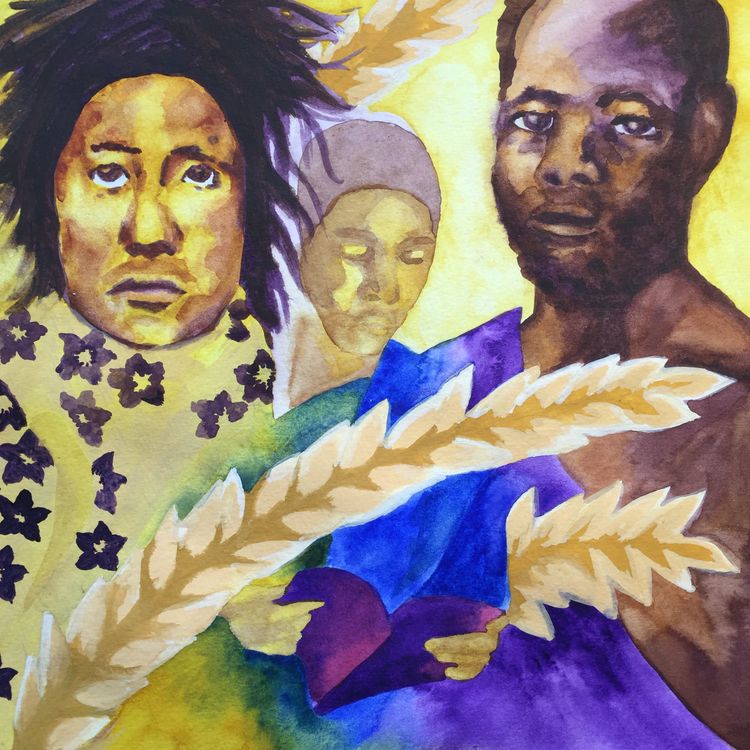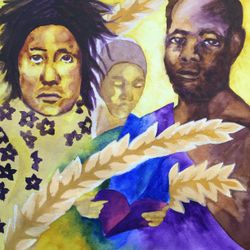Share

Liturgy & Longing
Seasons and Sacred Time
Season 1, Ep. 1
•
What time is it now? Perhaps for you personally and what you are noticing for the world or your community? What are you noticing about liturgy and what is working during this time of COVID-19? What is shifting as we find ourselves (in our homes and) re-imagining liturgical practice that meets the needs of people now? What is the value of sacred time/liturgical seasons, even in the midst of these unusual times? Three priests and a lay person discuss these questions, and the theology of gelato!
More episodes
View all episodes

2. Everyday Mysticism
01:01:27||Season 1, Ep. 2What is your metaphor for your life with God? For some, it's ascending a mountain, or going on a journey, or conforming one's life to the life of Christ. There are so many metaphors to describe the ways in which we shape our lives to God. We consider this shaping to be "everyday mysticism." How do you, as the person you are now, and living the life you're living now, begin to grow closer to God, and how does liturgy either help or hinder that closeness? Three priests and a lay person discuss these questions, and when it's appropriate to throw a book across a room!
3. Connections to Judaism
01:05:18||Season 1, Ep. 3This week Di, Jane, Karl and Jason are joined by Rabbi Miriam Terlinchamp of Temple Sholom in Cincinnati as they explore the similar ways in which Christians and Jews are approaching this time of pandemic. Christian liturgy obviously was profoundly influenced by Judaism, when it comes to how we gather, how we pray, what we pray (particularly the Psalms), how we bless, even how we arrange our sacred objects. Now we find that we can also benefit from the example of the Jewish transition to the home and synagogue as primary foci of worship after the destruction of the second temple.
4. Spiritual Leadership at Home
54:16||Season 1, Ep. 4Di, Jane, Karl and Jason are joined by Miriam McKenney, who has worked with Forward Movement, Grow Christians, Forma andseveral other groups to develop spiritual practices for families and individuals that can be practiced at home. What is the invitation to practice faith at home during the epidemic? What are we seeing or learning from people? How does it change the role of the priest/religious educators? What does it mean for people to become the spiritual leaders of their own homes? We examine these questions together, while also asserting to parents that it really is enough just to love your children.
5. Storytelling
52:12||Season 1, Ep. 5Di, Jason and Karl are joined by Emmanuel Tuyishime, who survived the Rwandan genocide to become an Episcopal priest in Dayton and a leader of the Rwandan community there. The gang talks about the power of stories to restore community, reclaim faith, and reconcile enemies. They also talk about some of the dangers of stories and storytelling, and how storytelling functions in liturgy.
6. How God Shows Up in Different Ways for Different People
53:16||Season 1, Ep. 6Someone said the other day that they realized that this was not just a temporary crisis but more like a chronic illness, it’s not going to just go away and be a temporary thing we all lived through once. Di, Jane, and Karl discuss how the ways we are learning to experience God andcommunity both as individuals and as communities of faith are in this crazy transformative time are causing us to rethink all the things we thought we knew. We had come to expect that God would show up in word, music, movement, communion. How is God showing up now?
7. Ancient Practices
49:09||Season 1, Ep. 7Jana Riess joins Karl, Jane, Di, and Jason to talk about how she and her friends Patton Dodd and David Van Biema rediscovered the medieval practice of using Christian prayer wheels, and the conversation spread from there into what ancient prayer practice offer our liturgical understanding during the Covid-19 pandemic.
8. Discipleship and Mission
58:08||Season 1, Ep. 8Eight days after George Floyd was murdered by a police officer in Minnesota, Di leads Jane, Karl, and Jason in a discussion of racial justice and healing, the need to accept the likelihood of making mistakes and saying the wrong thing when trying to engage in this work, and the willingness to engage anyway. How does liturgy teach us this, and how does it help us to lament? This is the final episode of Liturgy and Longing, and we thank our listeners with a whole heart.